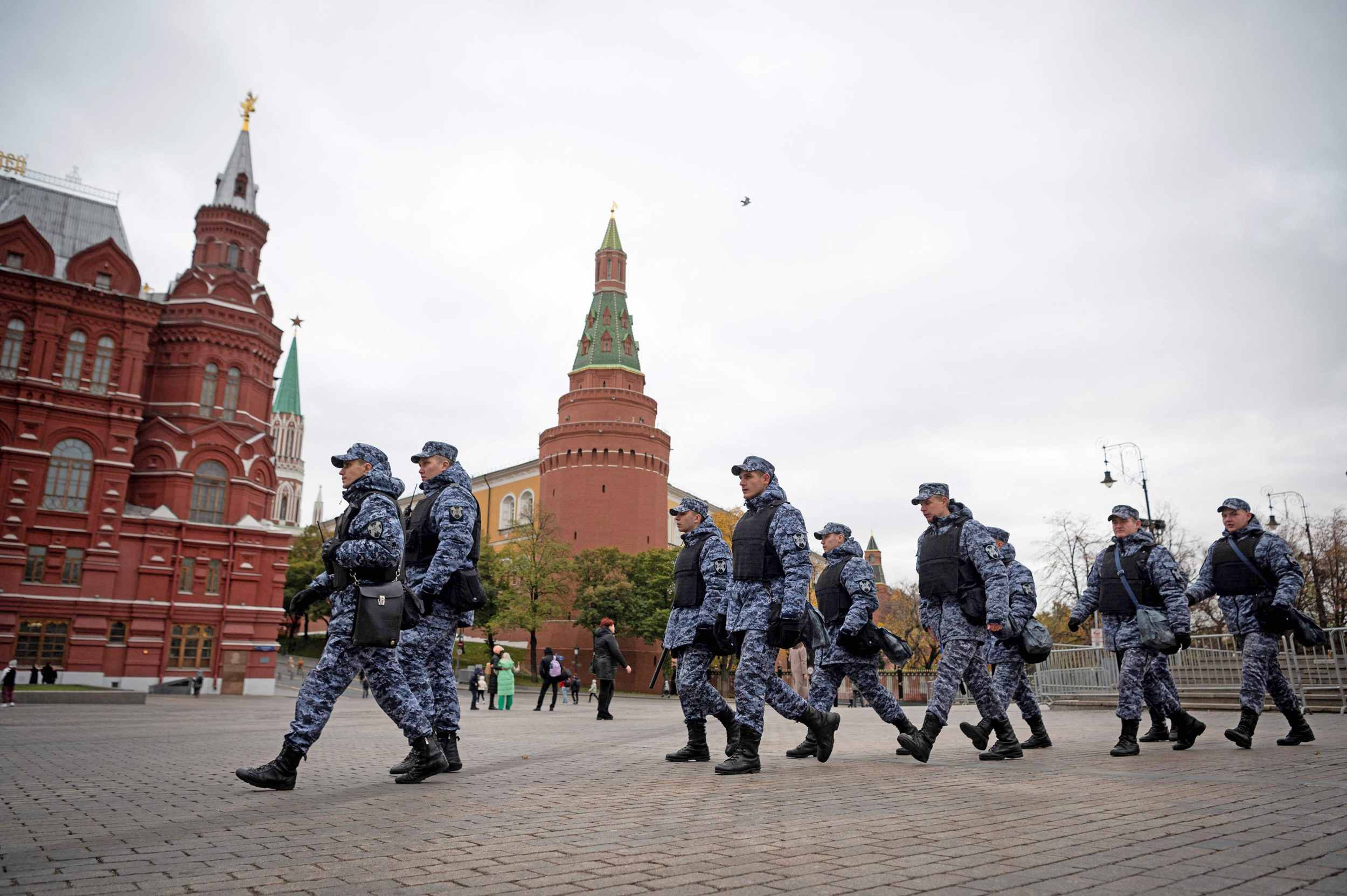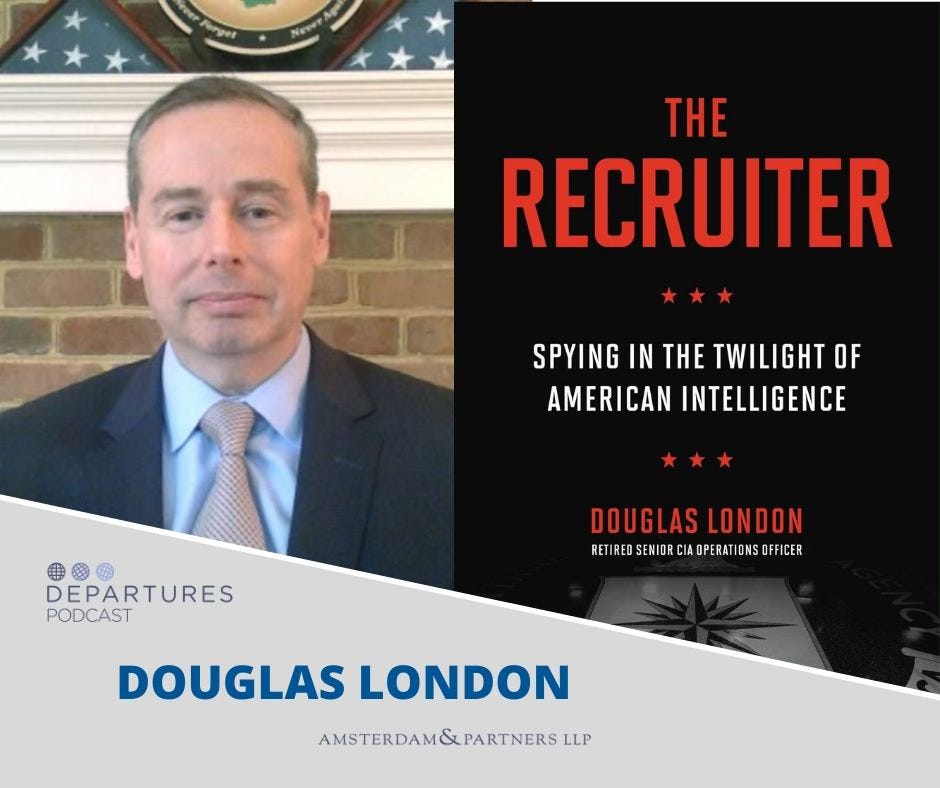Welcome to SpyWeek, our new weekly newsletter where we look at news from the intersection of intelligence, foreign policy, and military operations.
The Spy’s Toolkit: One of the things folks seem to enjoy about SpyTalk is the unique perspective that spies bring to current events. Douglas London, a veteran CIA operations officer, shares some remarkable insights from his 34-year career in the agency, starting with what he calls a “key tool” for spies: empathy. Spying requires you to deal with your enemies on a human level, and it’s almost impossible without empathy. London writes of an al Qaeda employee with whom he shared a tearful embrace, and the senior Libyan security official with a reputation for brutality who offered intimate insights about his life, family, and views. “Bridges can be built, even with such otherwise odious characters, on foundations of shared interests and humanity,” London writes. Empathy is sorely missing in the conflict between Israel and Hamas, but it’s also sorely needed. “There can be no end to this bloody contest without a safe space for communication beyond the eyes, ears, and pressure of politicians and their domestic constituencies,” London writes.
Intelligence Diplomacy: Doug London got us thinking about why spymasters have become the trusted intermediaries between Israel and Hamas. Mossad Director David Barnea met with CIA Director Bill Burns and Qatari Prime Minister Mohammad bin Abdulrahman al Thani in Warsaw Monday to secure the release of more of the 130 Israelis and foreign nationals held hostage in Gaza. The three men, joined by the director of Egyptian General Intelligence, Abbas Kamel, met previously in Doha to hammer out deals for cease-fires and hostage releases. The inclusion of Barnea, in lieu of one of Israel’s political or military leaders, is especially striking. Barnea’s entire Mossad career was focused on understanding Israel’s enemies. After joining Mossad in 1996, he was assigned to Tzomet, Mossad’s HUMINT division, where he recruited agents to work against Iran and Lebanon’s Hezbollah militant group, according to veteran Israeli journalist Yossi Melman. Barnea served as a case officer, chief of station, and rose to head Tzomet, overseeing the organization’s agents worldwide.
New Bridge of Spies: It used to be that Vienna and the “Bridge of Spies” connecting East and West Berlin were the places where the U.S. and the USSR quietly exchanged captured agents and hostages. Today, “that mantle has shifted decidedly east,” the Wall Street Journal notes. The new Bridge of Spies may well be a conference room in Doha, which hosted cease-fire discussions between Hamas and Israel, or Ankara’s Esenboga Airport, which was the trading floor for prisoner swaps between the United States and Russia. “It is all about trust,” said one senior Turkish official. “It is intelligence diplomacy.” The Journal reports that a hidden hand of Turkey’s hostage diplomacy is Hakan Fidan, the veteran spy chief and minister of foreign affairs.
Election Meddling: With American elections looming, we got a warning from the last one: DNI Avril Haines’ declassification this week of an assessment of foreign threats to the 2022 U.S. midterms, which showed a shift in strategies. The report by the National Intelligence Council identified a “diverse and growing group” of foreign actors interfering in American democracy but found no persistent foreign government cyber efforts to gain access to and tamper with U.S. election infrastructure, suggesting that influence operations are seen as lower risk and higher reward. Of note was Beijing’s efforts to target a few congressional candidates perceived as anti-China. “Beijing is convinced that Congress is a locus of anti-China activity, driving a downturn in the bilateral relationship,” the NIC found. China, however, refrained from favoring one political party over another. Not so with Russia, which sought to denigrate the Democratic Party before the midterms, “most likely to undermine U.S. support for Ukraine.” The report identified various tactics used to sway U.S. voters: social media accounts, paying influencers, and enlisting PR firms.
Scratch my Back: Senator Ron Wyden wrested some long-sought information out of the National Security Agency when he lifted his hold on Air Force Lt. Gen. Timothy Haugh, who was confirmed Tuesday as the new NSA director. The Oregon Democrat objected to Haugh’s confirmation until he received answers to questions he had been asking since 2021 about whether the NSA, the world’s largest eavesdropping organization, is buying the location data and web browsing records of U.S. citizens from data brokers. “The NSA and Department of Defense have provided Senator Wyden with information that is responsive to his inquiry about the purchase of Americans’ data, including internet browsing data, and therefore he has lifted his hold on General Haugh’s nomination,” Keith Chu, a Wyden spokesman, tells SpyTalk. “Sen. Wyden is reviewing the materials and anticipates making them public following that review.”
Kid Gloves: As everybody knows by now, a 10-inch thick binder of classified information about Russian election interference vanished at the end of Donald Trump’s presidency. Not misplaced or leaked, CNN reported. But gone. Poof. The “Crossfire Hurricane” binder contained raw intelligence the U.S. and its NATO allies collected on Russians and Russian agents, which could reveal sources and methods. The documents weren’t found in the FBI’s search of Mar-a-Lago. Meanwhile, after a review of cases involving several other not-so-fortunate U.S. officials accused of mishandling secrets, SpyTalk’s Jeff Stein asked, “Why Wasn’t Trump Quickly Arrested in Classified Docs Case? Would-be whistleblowers like Thomas Drake or Reality Winner had their lives ruined to serve as a warning to others not named Trump.
Department of Declassification: Remarks by Navy Secretary Frank Knox, a week after the Japanese surprise attack on Pearl Harbor, about Japanese American “fifth column activity” on Hawaii, are often cited in the lead-up to President Roosevelt’s shameful executive order interning loyal Japanese Americans. Newly declassified documents reveal that the FBI knew immediately that Knox’s remarks were false. Robert Shivers, the special agent in charge of the Hawaii bureau, telegrammed J. Edgar Hoover to advise them that Knox’s remarks were “false in the main and highly exaggerated in fact. Absolutely no instance of sabotage.” U.S. citizens of Japanse ancestry in Hawaii “have given every evidence of loyalty with few possible exceptions.” Shivers continued, “Knox’s statement sounds as if trying to alibi or cover inexcusable failure [by] Navy in not being prepared for this attack.” Knox was a staunch advocate of Executive Order 9066, signed by Roosevelt in 1942, which authorized the mass forced removal and incarceration of all Japanese-Americans on the West Coast.
Navy Secretary Frank Knox, seen here greeting offices aboard the USS Saratoga in 1943, lied about Japanese-American “fifth columnists” in Hawaii (Navy photo via the Don Garber Collection)
Classified Bus Thief: This item in Seamus Hughes’ CourtWatch caught our eye. “The Justice Department wants to designate a classified information security officer for a case involving a 22-year-old Saudi national who allegedly stole a school bus in New Jersey. The filing notes that ‘during the course of the investigation, the Government has learned about classified information that is related to this case.’”
This Christmas, for the spy who has everything:
Is there something we missed? Or something you would like to see more of? Send your tips, corrections, and thoughts to SpyTalk@protonmail.com. We’re taking a brief holiday break, and we’ll back in 2024.
Launched in 2000, SpyTalk is now read in 183 countries and all 50 states—but only because of the support of readers like you. Please consider becoming a subscriber.




